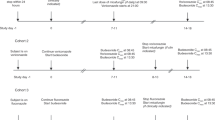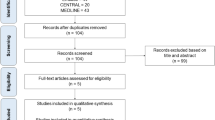Abstract
This was an open study of oral antifungal prophylaxis in 103 neutropenic children aged 0–14 (median 5) years. Most (90%) were undergoing transplantation for haematological conditions (77% allogeneic BMT, 7% autologous BMT, 6% PBSC transplants and 10% chemotherapy alone). They received 5.0 mg/kg itraconazole/day (in 10 mg/ml cyclodextrin solution). Where possible, prophylaxis was started at least 7 days before the onset of neutropenia and continued until neutrophil recovery. Of the 103 who entered the study, 47 completed the course of prophylaxis, 27 withdrew because of poor compliance, 19 because of adverse events and 10 for other reasons. Two patients died during the study and another five died within the subsequent 30 days. No proven systemic fungal infections occurred, but 26 patients received i.v. amphotericin for antibiotic-unresponsive pyrexia. One patient received amphotericin for mycologically confirmed oesophageal candidosis. Three patients developed suspected oral candidosis but none was mycologically proven and no treatment was given. Serious adverse events (other than death) occurred in 21 patients, including convulsions (7), suspected drug interactions (6), abdominal pain (4) and constipation (4). The most common adverse events considered definitely or possibly related to itraconazole were vomiting (12), abnormal liver function (5) and abdominal pain (3). Tolerability of study medication at end-point was rated as good (55%), moderate (11%), poor (17%) or unacceptable (17%). Some patients had poor oral intakes due to mucositis. No unexpected problems of safety or tolerability were encountered. We conclude that itraconazole oral solution may be used as antifungal prophylaxis for neutropenic children.
This is a preview of subscription content, access via your institution
Access options
Subscribe to this journal
Receive 12 print issues and online access
$259.00 per year
only $21.58 per issue
Buy this article
- Purchase on Springer Link
- Instant access to full article PDF
Prices may be subject to local taxes which are calculated during checkout
Similar content being viewed by others
Author information
Authors and Affiliations
Rights and permissions
About this article
Cite this article
Foot, A., Veys, P. & Gibson, B. Itraconazole oral solution as antifungal prophylaxis in children undergoing stem cell transplantation or intensive chemotherapy for haematological disorders. Bone Marrow Transplant 24, 1089–1093 (1999). https://doi.org/10.1038/sj.bmt.1702023
Received:
Accepted:
Published:
Issue Date:
DOI: https://doi.org/10.1038/sj.bmt.1702023
Keywords
This article is cited by
-
Efficacy and safety of itraconazole use in infants
World Journal of Pediatrics (2016)
-
Clinical Pharmacology of Itraconazole in Children and Adolescents
Current Fungal Infection Reports (2015)
-
Cerebral Fungal Infection in Pediatric Cancer Patients
Current Fungal Infection Reports (2015)
-
Pharmacokinetics and Pharmacodynamics of Antifungals in Children: Clinical Implications
Drugs (2014)
-
Antifungal Prophylaxis in the Pediatric Intensive Care Unit
Current Fungal Infection Reports (2013)



